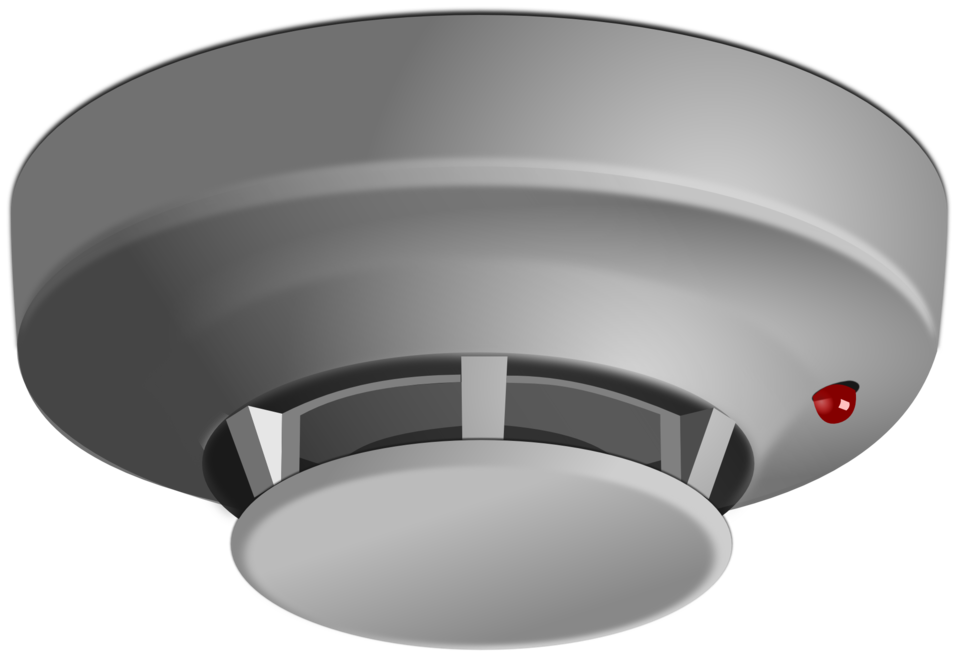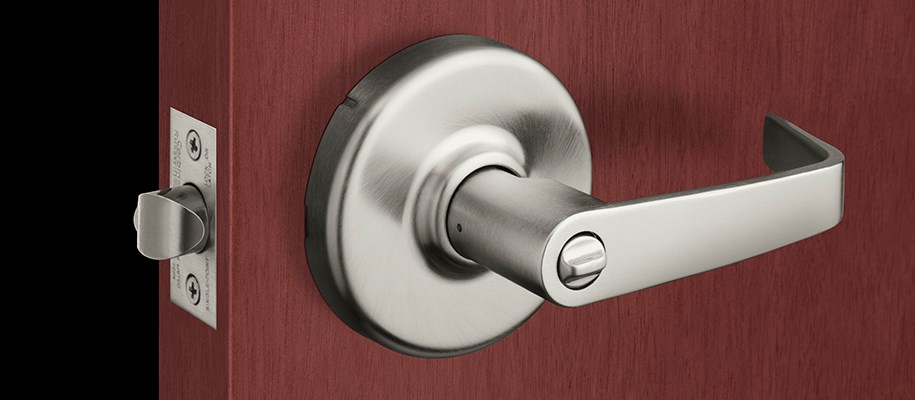When we install commercial security measures, we discuss a variety of variables with our customers. For starters, we must help our customers choose the equipment that best suits their unique security needs. Then, we work with them to install the equipment at the locations that work best from a security and aesthetic standpoint. Finally, in some instances, we must also work within legal frameworks to make sure we install any legally-mandated security devices according to national and local guidelines. In this post, we focus on this last point of commercial security so you can see the steps that we take to install these important systems and devices.
First, we’ll explain why the law comes into play when we work with certain forms of commercial security. From there, we’ll review the laws and regulations regarding important life safety equipment. Specifically, we’ll focus on fire alarm systems and fire extinguisher code. Following this, we’ll spend some time demonstrating the importance of the regulations surrounding mechanical lock harware. Finally, we’ll shift our attention to some industry and insurance-driven requirements that represent some unique instances of required security. Now, let’s dive in with a look at understanding legally-mandated security requirements.
Understanding Legally-Mandated Security Requirements
Last week, we pointed out that even non-required security measures have certain legal requirements. For example, we must always pull an electrical permit to perform hardwired commercial security work. Similarly, we also work with cities and towns to have our work inspected after the installation. This allows you to know that we’ve performed our work safely and legally.

Installing monitored smoke detection in your business creates a fire department dispatch when your alarm detects a potential fire-related emergency.
However, the types of security described here come with additional legal mandates. When installing the equipment we’ll discuss below, we have to follow codes and laws that force us to adhere to strict guidelines. These guidelines cover everything from device location requirements to inspection procedures. They also determine what types of equipment we install in certain settings. The reasons for these guidelines quite often have to do with life safety in the case of a fire emergency. Additionally, we also must follow laws meant to provide full access to businesses for handicapped individuals. Finally, we’ll even see some instances in which industry or insurance-driven regulations take hold. Now, let’s get started with a look at life safety security regulations.
Life Safety Equipment
As you can expect, commercial life safety equipment gets top priority from lawmakers, business owners, and security companies. These types of security measures therefore have very strict codes and laws that govern their installation. In this section, we’ll look at how we follow legal guidelines surrounding a couple important forms of life safety. First, we’ll see how we go about designing required fire alarm systems for businesses. From there, we’ll shift our focus to the proper installation and maintenance of fire extinguishers. Let’s get started!
Fire Alarm Systems
The International Code Council (ICC) and the National Fire Protection Alliance (NFPA) create the codes and standads for a number of safety measures. They apply to several industries, including contsruction, mechanical work, and plumbing. The most relevant code for smoke alarm requirements put out by the ICC is the International Building Code, or “IBC.” The code that provides guidelines for fire alarm system design is the National Fire Alarm and Signaling Code, or “NFPA 72.” For this reason, fire departments and fire system designers reference these code books frequently.
The IBC and NFPA72 work together to determine what type of fire equipment you need, and where. Specifically, the International Building Code places your business in a certain “class.” Examples of class types include retail spaces, places of worship, hotels and other boarding spaces, and schools. The IBC combines your type of business with factors such as building size and occupancy. Using these measures, it then tells you what type of fire system you require.
After determining fire system requirements, we design an alarm. Then, we use NFPA 72 to meet guidelines for spacing, material, and equipment technology. Every few years, the ICC and NFPA create new versions of these guidelines. States ratify these into law at their own pace, but generally remain fairly up to date in keeping up with national guidelines. Unfortunately, constantly-changing system requrements can surprise business owners. For example, an owner of a business who moves locations could experience stricter fire system guidelines in their new spot, even without changing the type of business they run! Therefore, doing this research beforehand can save you grief when opening up your business. Now, let’s look at another legally-mandated security measure related to life safety.
Fire Extinguishers
Just as with fire alarms, the NFPA has a large say in commercial fire extinguisher requirements. In this case, NFPA 10 provides the blueprint for extinguisher installation. These requirements include industry-specific guidelines for the type of extinguisher required in specific areas of a business based on the present fire hazards. Our web site’s Fire Extinguishers section does a good job running down these types of extinguishers. We offer extinguishers that fight wood fires, gas fires, kitchen fires, and more. The type of business you run will determine what types of extinguishers fit you best.
After using the code to determine the best extinguishers for you, the next step is to put them in their proper place. NFPA 10 guidelines use your business classification and fire risk to determine this spacing. For example, “light hazard” businesses require detectors within 75 feet of each other. Finally, you must have a company with the proper license, such as oureselves, perform annual exinguisher maintenance. This involves checking your detectors for defects every year and performing occasional testing and refilling of extinguishers. Just as with the other items in this section, NFPA 10 tells us how often different types of extinguishers require these services. Next, let’s look at how physical lock hardware represents one of the industry’s most common types of legally-mandated security!
Locks and Door Hardware
Lock and door hardware requirements come from a couple different places with different goals in mind. For starters, the International Building Code contains safety-related hardware mandates. Primarily, these standards revolve around fire safety. For example, a commercial building’s fire exits must provide means for a single-motion egress (or exit). For this reason, you generally find exit devices (also known as “crash bars”) installed on exterior doors of a business. This allows for the quickest escape possible during a fire or other emergency. Installing deadbolts on commercial doors are also illegal in most settings. Again, this standard ensures that occupants of a building can get out as quickly as possible with getting locked inside any part of the business.

ADA-Compliant levers, such as this one by lock manufacturer Corbin Russwin, are required on the vast majority of commercial doors.
Additionally, the Americans with Disabilities Act (“or ADA”) of 1990 helped create many commercial lock requirements. Congress passed this law in order to ensure universal access to commercial buildings. The requirements put in place under this law include minimum guidelines for door openings to allow for wheelchair accessibility. They also include specifications on how quickly doors can close. Commercial levers must also meet ADA requirements for handicapped usage. Therefore, using doorknobs instead of levers in almost any commercial application fails to meet these guidelines. This surprises many business owners who install doorknobs, only to have to later swap them out for ADA-compliant levers. We recommend calling a commerical locksmith (such as Northeast Security Solutions) when designing your locks to ensure both safety and ADA-related security compliance. Let’s now look at far less comaon category of legally-mandated security!
Industry and Insurance-Driven Security
Occasionally, states creates industry-specific laws that make installing normally non-mandatory security a necessary step. For example, in Massachusetts, the Cannibas Control Commission (or “CCC”) requires burglar alarms in buildings that produce or sell marijuana. These requirements include specific guidelines for the performance of these security systems as well. In particular, our state requires these businesses to install alarms that stay monitored through means other than phone lines. This ensures that a failure with local phones will not interfere with alarm monitoring for cannabis-related businesses. While very few industries create these types of regulations, a few do.
Similarly, insurance companies may mandate that you install a burglar alarm in order to insure your property. This happens on a case-by-case basis, depending on the work going on and materials housed in a commercial property. In these cases, we can work directly with your insurance company to make sure we design an adequate system. From there, we can also provide documentation for your insurance provider that documents our installation and testing of the security system. Although not many businesses need burglar security, now you know about the exceptions to this rule.
Putting it All Together
We hope that this post helps you understand how we go about installing legally-mandated security in businesses. Moreover, we hope that this post and last week’s post give you a good overall look at commercial security design and installation. As always, we also enourage you to contact us with any and all of your security-related questions. If desired, we can even stop out and perform a free site survey of your business. While on site, we can recommend adding both required and optional security measures based on our observations. Creating complete commercial security plan should rest at the top of every business owner’s priority list. We will be more than happy to work with you to make your property as safe and secure as possible!
